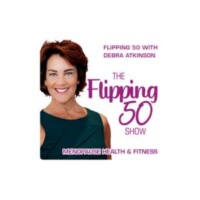Supplement Labels: How to Find the Right Supplements and Dosages for You
According to a survey by the Council for Responsible Nutrition (CRN), seventy-four percent of U.S. adults say they take dietary supplements, while 55 percent say they are regular users. The U.S. vitamin and supplement market is big business, bringing in $40.9bn in revenue in 2023. Supplements are widely available but how do you determine which supplements or nutraceuticals to take and choose the proper dosage for your needs?
Most Americans are nutrient deficient, nutraceuticals can help
However, many of the health problems people suffer from in this country can be attributed to an unhealthy diet and lifestyle habits. While nutraceuticals can help address nutrient deficiencies, it’s just as important (if not more so) to commit to eating a healthy diet and giving up processed foods. Ultimately, supplements and nutraceuticals should be used to support a healthy diet, not replace one.
That being said, nutrient deficiency is a huge problem in this country. Data from the latest National Health and Nutrition Examination Survey (NHANES) revealed that most Americans are deficient in vitamins K and D, among several other nutrients. NHANES data also revealed that less than 12 percent of Americans are metabolically healthy and that number is projected to decline even further.
Learn more about the role of nutrition in women’s health here.
A Few Tips for Reading Supplement Labels
The FDA requires manufacturers to include certain information on dietary supplement labels. What is that information and what does it mean? Depending on the supplement or nutraceutical, you may find the following information on the labels of products you purchase.
SUPPLEMENT FACTS, which may include:
- Serving Size: The number of pills or amount of liquid or powder the average healthy person on a 2000 calorie per day diet would need to consume daily.
- % DV or % Daily Value: The percentage of the nutrient that is included per serving to meet a healthy person’s daily dietary needs. (A nutrient deficient person may need to consume more.)
- UL (Tolerable Upper Intake Level): Only a few nutrients, fat-soluble vitamins A and D for example, include this designation, which is the maximum amount of a nutrient that should be consumed daily without posing a risk of adverse health effects to most people.
- * / * Daily Value not established. Daily value hasn’t been established for many nutrients and herbs. If that’s the case for a supplement you purchased, it should be noted on the label.
- Nutrient amount per serving. Various forms of measurement are used, depending on the nutrient, such as g, mg, mcg, IU, etc. (IU = international unit, an internationally accepted amount of a substance.)
OTHER INGREDIENTS, includes other ingredients found in the supplement besides the nutrients, such as fillers, additives, herbs, flavoring, colors/dyes and others. Consumers should be mindful of what is included in “other ingredients” because they may cause issues for people who are allergic to certain compounds or have conditions like gluten intolerance or celiac disease.
CONTRAINDICATIONS, which warns the consumer from consuming the supplement or ingredients based on a certain medical condition or how it interacts with other medications or supplements.
Keep in mind, the recommendations for serving size and %DV are recommendations for a person who is healthy. People who are not healthy may need higher doses of certain nutraceuticals based on their nutrient deficiencies. The average consumer isn’t going to know how to figure how much higher of a dose on his or her own.
Learning how to decipher supplement and nutraceutical labels is important but that knowledge will only take you so far. There is no way to know what nutrient deficiencies you suffer from without undergoing lab tests (blood, urine) and consulting with a qualified medical provider. You could end up taking supplements you don’t need or forgoing supplements that may benefit you.
OTC supplement quality isn’t guaranteed
Consumers should also keep in mind that nutritional supplements are not regulated the same way pharmaceutical drugs are regulated in the U.S. While the Food and Drug Administration (FDA) requires manufacturers of dietary supplements to follow certain guidelines, supplements don’t go through the same rigorous testing process pharmaceutical drugs do.
The FDA requires manufacturers to verify the supplements they make are safe and labeled accurately but the manufacturers essentially operate under the honor system, and many fraudulent and potentially dangerous products have ended up in consumers’ hands.
If you’re purchasing supplements over-the-counter (OTC) or online, it’s critical to research the manufacturer and learn about their manufacturing and handling practices first. The FDA requires manufacturers to adhere to Current Good Manufacturing Practices (CGMP) for manufacturing, labeling, storing and packaging of supplements but that doesn’t mean they all do.
Unfortunately, many supplements don’t include an accurate amount of the nutrients or ingredients listed on the label. The problem is so widespread, that a 2015 investigation by the New York State Attorney General’s office found that 80 percent of the herbal supplements they tested from four major retailers did not contain any of the herbs listed on their labels and contained cheap fillers instead.
While this investigation occurred several years ago, the same honor system is in place today. That’s why it’s typically best to purchase pharmaceutical-grade nutraceuticals from a qualified medical provider instead, like a Certified EvexiPEL® Medical Provider.
If you still prefer to purchase supplements OTC or online, check out the manufacturers’ websites to see if they produce their products in CGMP-certified facilities. Many also use third-party testing services to have their supplements certified for purity, potency, and quality. Some labels also include QR codes and lot numbers that allow you to trace the supplement. Even better, ask a qualified medical provider or registered dietitian to recommend OTC brands for you.
Adverse effects from supplements are rare, but consumers should mind UL
As mentioned earlier in this article, most Americans are nutrient deficient, so you may need to consume a higher dosage of certain supplements to achieve optimum health. If you’re concerned about experiencing side effects from taking too many supplements, listen to your body.
According to the Cleveland Clinic, symptoms vary depending on supplement type, but common side effects of taking too high a dosage of a supplement may include gastrointestinal (GI) issues, like diarrhea, vomiting, nausea, and stomach pain, as well as appetite loss, frequent urination, irregular heartbeat, and mood changes.
While rare, some adverse effects from supplements can be more serious. These supplements often include a UL (tolerable upper intake level), which applies to a combination of nutrients taken in through food AND through supplementation. As the amount of a nutrient consumed increases above the UL, so does the risk for adverse effects.
The fat-soluble vitamins A and D are the most common nutrients with a designated UL. One cannot reach UL through food alone, only through high-dose supplementation, and one would need 10,000 RAE (retinal activity equivalents) to do so. However, most Americans are deficient in vitamin A, and toxicity is a very rare occurrence. Vitamin D toxicity can be a concern, but it is also a rare occurrence.
For people with the condition hemochromatosis (a disorder that causes excess iron accumulation), taking too much iron can increase the Fenton Rx and create a cascade of oxidative stress. Excess iron can cause GI symptoms like nausea or vomiting and over time can accumulate in organs and cause serious health issues. Consuming too much zinc can cause a copper deficiency.
The UL for calcium is 2500 mg. However, most people have enough calcium; they do not have enough D and K to benefit bone health. Vitamin D signals to vitamin K to move calcium out of the blood and into the bone. Essentially, vitamin D regulates blood and bone calcium, shifting between the two as needed. Taking too much calcium without having enough vitamin D can increase the amount of calcium in the blood and increase the risk of calcification of the arteries.
Not sure which supplements to buy? Speak with a qualified medical provider
As you can see, figuring out which supplements to take (and how much) is a lot more complex than most consumers would imagine. We’ve barely touched the tip of the iceberg here. The best way to determine proper supplement dosage and ensure the supplements you purchase are high-quality, is to speak with a qualified medical provider or registered dietitian who specializes in nutrition and practices integrated, functional medicine.
Qualified medical providers understand 21st century medicine and the role different nutraceuticals play in total body health, as well as how they support various systems in the body. Proper nutrition, which may involve both a healthy diet and nutraceuticals, is essential for getting and staying healthy.
Want to learn more about the pharmaceutical grade nutraceuticals available through EVEXIAS? Schedule an appointment with a Certified EvexiPEL® Medical Provider today! Find an EveiPEL Certified Provider near you today!
Author: Sandra Goodacre, DO









comments
Add comment